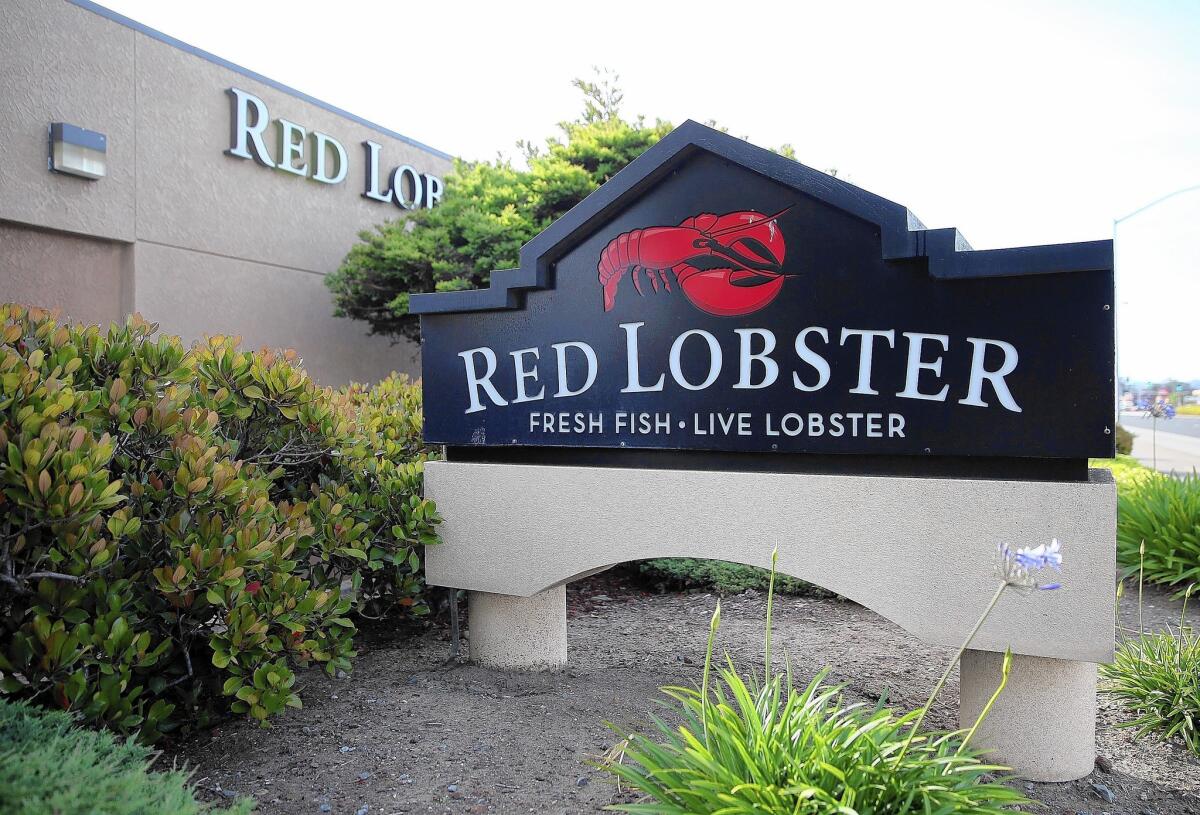Darden Restaurants to sell Red Lobster chain for $2.1 billion

- Share via
Darden Restaurants Inc. has agreed to sell its Red Lobster seafood chain to San Francisco private equity firm Golden Gate Capital for $2.1 billion, flouting the warnings of some of its shareholders.
The all-cash deal will allow Darden to focus more on reviving its troubled Olive Garden chain. Activist investor Starboard Value in February publicly called Darden’s plans to sell or spin off Red Lobster’s 705 units a “potential destruction of shareholder value.”
After tax and transaction costs, the Red Lobster sale will leave Darden with $1.6 billion. The Orlando, Fla., company plans to use $1 billion to retire outstanding debt and as much as $600 million to fund a new share repurchase program.
The moves are expected to improve the company’s creditworthiness. Darden says it is the world’s largest full-service restaurant company with more than 2,100 units under brands such as Olive Garden, Yard House and Capital Grille.
Red Lobster will join a $12-billion portfolio at Golden Gate that includes such major consumer names as California Pizza Kitchen, Eddie Bauer, Pacific Sunwear and Payless Shoe Source.
In March, Darden said Red Lobster’s fiscal third-quarter same-store sales declined 8.8% and visits plunged 11.9% compared with a year earlier.
Darden said it underwent “a robust process to maximize the value potential of a sale or spinoff of Red Lobster and its real estate assets.”
The deal, which Darden’s board unanimously approved, is set to close in the first quarter of 2015. Although it is subject to regulatory approval, it does not need to be cleared by shareholders.
Darden stock slipped 4%, or $2.20, to $48.49 on Friday.
“We believe this agreement addresses key issues that our shareholders have raised, including the need to preserve the company’s dividend and regain momentum at Olive Garden,” Chief Executive Clarence Otis said in a statement.
Twitter: @tiffhsulatimes
More to Read
Inside the business of entertainment
The Wide Shot brings you news, analysis and insights on everything from streaming wars to production — and what it all means for the future.
You may occasionally receive promotional content from the Los Angeles Times.











